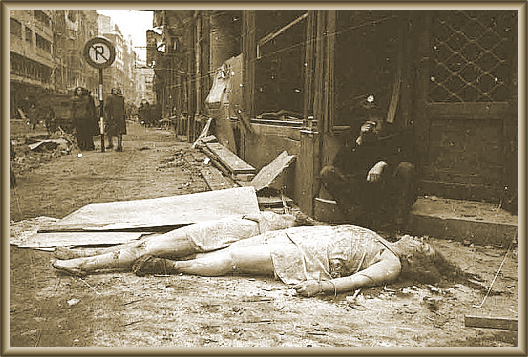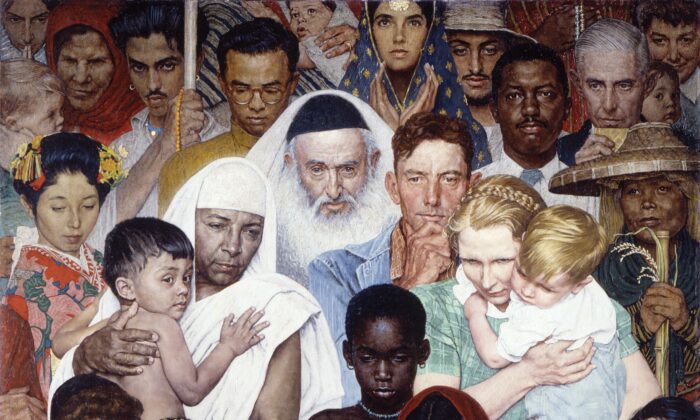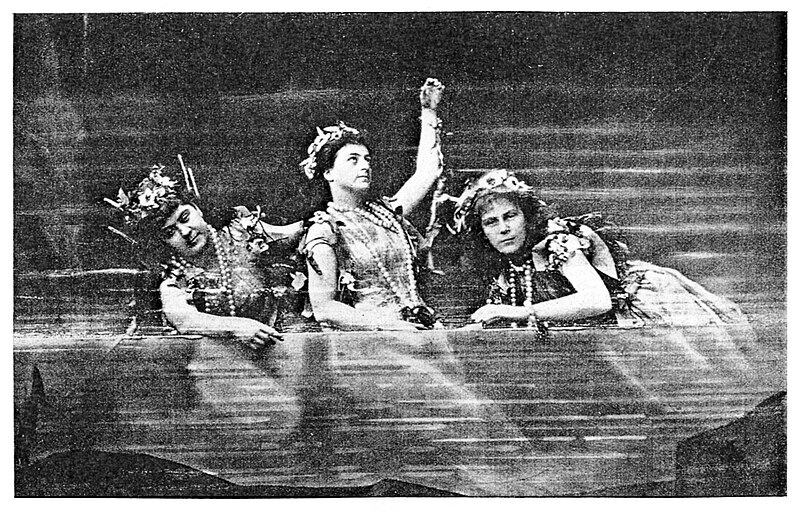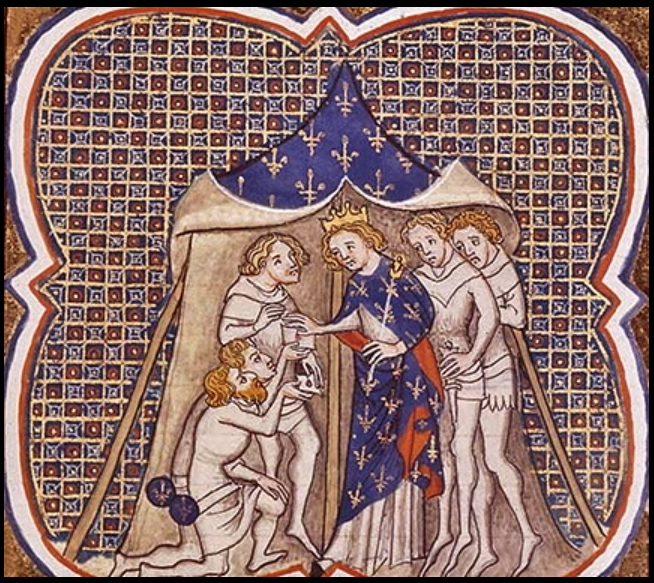
Meanwhile, to the west, the Americans were engaged in their own version of sexual conquest. Soon after they stormed ashore on D-Day, June, 1944, the worst elements in the US Army were allowed virtual free reign to rob, rape and kill.
“Reports that disciplinary conditions in the army are becoming bad,” General Eisenhower’s personal driver and mistress, Kay Summersby, candidly recorded. “Many cases of rape, murder, and pillage are causing complaints by the French, Dutch, etc.”
Expecting an army of heroic liberators, the Europeans were naturally surprised and shocked at the lack of discipline among the Allied forces, especially that of the Americans. Drunkenness, theft, wanton destruction of public and private property, casual sex on streets and in parks, but above all, violent sexual assault—many French soon referred to the American occupation as a “regime of terror… imposed by bandits in uniform.”
Historian, Mary Louise Roberts, poignantly recounts one such incident:
The handsome American soldier was Elisabeth’s tenth client that evening. Working her trade on the top floor of a dingy apartment block in Paris, she felt that she had seen them all.
For the past four years, the men had been Germans, and now, since the city had been liberated in August, 1944, they were Americans. It made little difference.
Elisabeth held out three fingers of her hand to indicate the price of her body—three hundred francs.
“Too much,” said the soldier.
Elisabeth sighted. She had seen that before as well. Wearily, she kept the three fingers held up, almost as an insult.
There was no negotiation—three hundred was little enough as it was.
“Two hundred,” the soldier insisted.
“Non,” said Elisabeth. “Three hundred or nothing.”
The soldier approached her, hate in his eyes. Elisabeth glowered back, starting to feel scared.
“In that case,” said the soldier, “it will be nothing.”
The soldier then placed his huge hands around Elisabeth’s neck and started to squeeze. She struggled as hard as she could, lashing out, but it was in vain.
After a minute or so she slumped down, her lifeless body falling on to the stained sheets. The soldier then calmly removed his trousers and had sex with her. For nothing.
Afterwards, he went through Elisabeth’s belongings and stole her cash and jewelry. He then went round the block, found another prostitute and took her to dinner and the movies.
For the GI, it had been a swell evening. Paris was just as they said it was.
“The French now grumble that the Americans are a more drunken and disorderly lot than the Germans and hope to see the day when they are liberated from the Americans,” admitted one US general in disgust. “I am informed the Germans did not loot either residences, stores, or museums. In fact the people claimed that they were meticulously treated by the Army of Occupation.”
After raping and robbing their way across France and Belgium, the US Army reacted much like the Soviets once they crossed into Nazi Germany in early 1945. Imagining the Americans to be much like the disciplined and well-behaved Wehrmacht, many German women, young and old, actually greeted the invaders euphorically as the longsought symbol that the war was finally over and peace was at hand. Unfortunately, most found out too late, just as the boys at Dachau discovered, that these were not the Americans of their imaginations.
“We were crazy with happiness when the Americans came…,” lamented one woman, “[but] what [they] did here was quite a disappointment that hit our family pretty hard.”
“After the fighting moved on to German soil, there was a good deal of rape by combat troops and those immediately following them,” offered Australian journalist, Osmar White, a war correspondent traveling with the Americans. Soon after entering towns and villages the rapes began. Indoors or out, night or day, on park benches, against walls, on shop floors, the sexual attacks continued as the American conquerors laid claim to the conquered. Often going house to house in search of victims, some rapists initially claimed that they were looking for weapons, or food, or German soldiers in hiding. All too quickly their true purpose was made clear. In one German town, a group of six GIs found an attractive mother and her teenage daughter home alone. In the struggle to drag the victims upstairs, the females escaped out the door and hid in a neighbor’s closet. Finding their hiding place, the soldiers immediately threw the mother and daughter onto beds and one after another took turns raping the females, even as the daughter cried out, “Mama, Mama.”
At the Bavarian village of Ramsau, revealed one priest, “eight girls and women [were] raped, some of them in front of their parents.” In other villages, “heavily drunken” US soldiers helped themselves to the females. After raping one woman, a GI bragged that he had “liberated” her. In an apparent attempt to make the job easier for their men, some US officers required all homes to state the names and ages of their inhabitants and then nail the lists to their doors.
“The results of this decree are not difficult to imagine…,” a priest from one town answered. “Seventeen girls or women… were brought to the hospital, having been sexually abused once or several times.”
Rather than use their authority to punish the criminals and thereby stop most of the sexual attacks, American officers, much like their Soviet counterparts, seemed utterly indifferent to the crime, preferring instead to either ignore it entirely or blame the victims. Instead of arresting black soldiers for a massive number of rapes, the victims themselves were blamed because they “smiled” at the negroes while begging food. US Lieutenant General Edwin Lee Clarke went even further. “German women are creating a feeling of great insecurity among our soldiers by untrue charges of rape…,” announced Clarke. “These tactics might be part of a German plan.”
As with the Soviets, the Americans seemed to have no age limit and an elderly woman of 65, or older, could expect to be raped just as could a child of seven, or younger. There were other similarities. Revealed an Allied official:
German women were more frequently injured, beaten unconscious, abused more frequently in front of husbands or relatives and more frequently penetrated orally or anally by Gls than by the British or French.
“Americans look on the German women as loot, just like cameras and Lugers,” confessed a reporter for a New York newspaper.
“[W]e too are considered an army of rapists,” admitted a US sergeant matter-of-factly.
Added a writer for Time magazine succinctly: “Many a sane American family would recoil in horror if they knew how “Our Boys” conduct themselves… over here.
And the duty of concealing from the American public these crimes their husbands and sons were committing in Europe—and later, in Japan—was the job of the Office of War Information. Issuing its unequivocal marching orders to a small army of journalists following along with American troops, the OWI simply perfected a Soviet style censorship on all news and information destined for the US. “The rules for correspondents [were both]… imposed and self-imposed,” explained the American writer, John Steinbeck, about how he and other reporters hid the truth:
There were no cowards [or rapists or murderers] in the American Army, and of all the brave men the private in the infantry was the bravest and noblest… A second convention held that we had no cruel or ambitious or ignorant commanders… We were all a part of the War Effort. We went along with it, and not only that, we abetted it. Gradually it became a part of all of us that the truth about anything was automatically secret and that to trifle with it was to interfere with the War Effort. By this I don’t mean that the correspondents were liars… [but] it is in the things not mentioned that the untruth lies. We felt responsible to what was called the home front. There was a general feeling that unless the home front was carefully protected from the whole account of what war was like, it might panic. Also, we felt we had to protect the armed services from criticism, or they might retire to their tents to sulk like Achilles.
Thus, in effect, each “reporter” was expected to ignore or deny the looting, rape and murder committed by the Americans and exaggerate or invent the war crimes committed by the Germans; to dutifully deify their friends in the one breath and viciously vilify their enemy in the next. In essence, a corp of conscientious, diligent newsmen during times of peace had been transformed into an obedient herd of propagandists during times of war.

While some upright American officers, like their Russian counterparts, tried manfully to control the scourge of rape in their units, most did not. For German women, the baffling contradictions in each army was itself a source of nonstop terror and stress. Near Berlin, when a family encountered their first Soviets at war’s end they were naturally paralyzed with fear, fully expecting a riot of robbery and rape to envelop them. Surprisingly, the Russians were very polite and left without harming anything or anyone, including the family’s females. When the Americans later arrived, however, one of the daughters was raped so brutally that years later she still had not recovered.
Although sexual assaults by French troops in Germany were fewer than other allies, perhaps only because there were fewer French troops to begin with, not so the African colonials under their command—Moroccans, Senegalese and others who raped on a massive scale. Just as with their American and Soviet allies, the French commanders seemed indifferent to the fate of German civilians, especially women. Indeed, many French officers seemed to gloat in their power and allowed their black troops to run wild, robbing, raping, and murdering. “In the next few nights,” boasted one French sergeant, “no woman will go untouched.” When Senegalese troops reached Stuttgart in southwest Germany, they herded thousands of women, and a number of men, into the subway then raped and sodomized them all at their leisure.
While the British were far and away the most disciplined and correct of all Allied forces, that army too had its criminal element. “I didn’t go out and chase my chaps away from the women,” laughed one junior officer. “I didn’t have time. I was doing it myself!”
And thus, in the east, in the west, in their thousands, in their tens of thousands, in their hundreds of thousands, perhaps in their millions, the sexual assaults and spiritual slaughter of German females continued long after the war was declared over.
“I was panic-stricken. I was always afraid that everybody could see it in me. I was insecure in myself. I felt so empty,” confessed one young victim expressing the emotional chaos and confusion of countless others. “I wanted to do away with myself and kept crying. My mother would not let me go anywhere alone, not even to the toilet.”
“Is this the peace we yearned for so long?” cried Elsbeth Losch from a town near Dresden. “When will all this have an end?”
______________
Note of the Editor: Here you can request an item of the ‘Hellstorm Holocaust’ package (the biggest secret in modern history: the Allied genocide of Germans after 1945), and here you can order Tom Goodrich’s other books.








